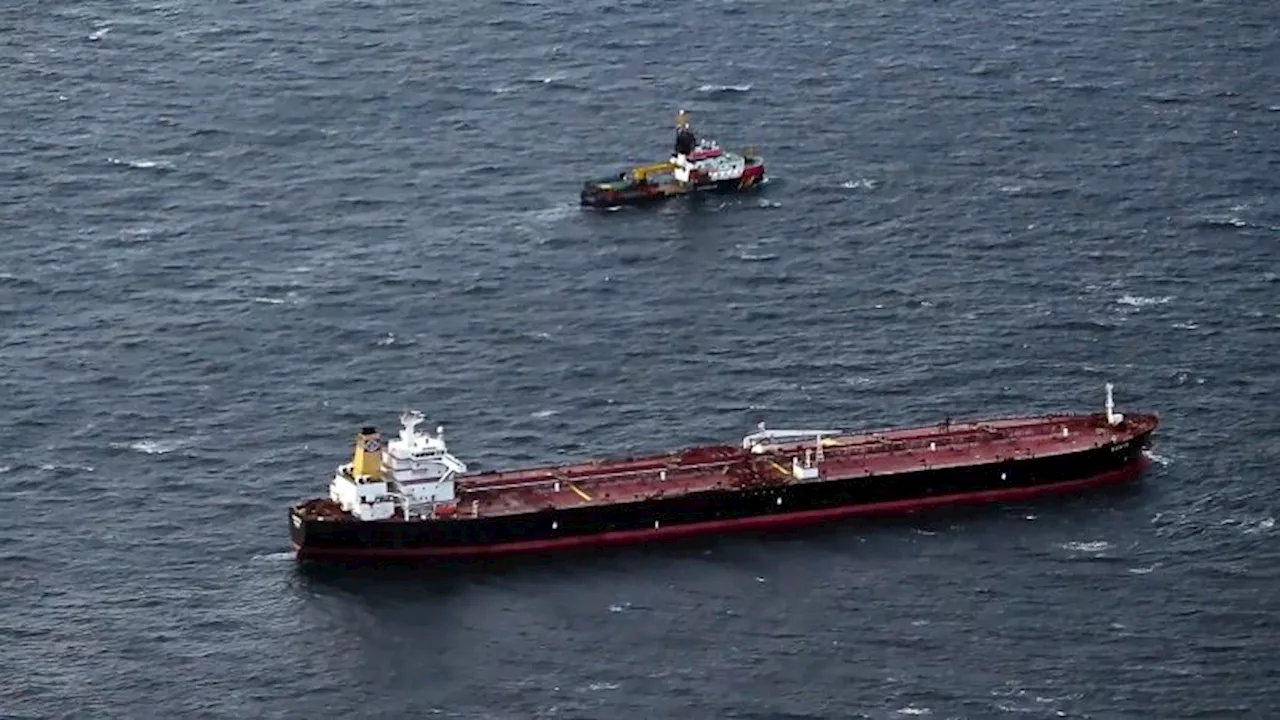The Baltic states, Estonia, Latvia, and Lithuania, will disconnect from the Russian electricity grid on February 8th, 2025, marking a milestone in their energy independence journey. This move signifies a strengthening of ties with the EU and a reduction in reliance on Russian energy resources.
Nearly 3 1/2 decades after leaving the Soviet Union, the Baltic countries of Estonia, Latvia, and Lithuania this weekend will disconnect from the Russia n electricity grid , marking a significant step towards full energy independence. The disconnection ceremony, scheduled for Sunday, will see EU chief Ursula von der Leyen and other dignitaries present as a specially-made 9-meter (29.
5-foot) tall clock in downtown Vilnius counts down the final moments of the Baltic states’ electricity ties to Russia. Over the years, sixteen power lines connecting the three Baltic states with Russia and Belarus have been dismantled as a new grid linking them with the rest of the EU was created. On February 8th, these remaining connections will be switched off one by one. For 24 hours, the Baltic Power System will operate solo in an “island operation mode.” The next day, the power system is set to merge with the Continental European and Nordic grids through several links with Finland, Sweden, and Poland.The Kaliningrad region, a Russian exclave wedged between EU members Poland and Lithuania and the sea, will be switched off due to its dependence on its own power generation. While the Kremlin spokesman Dmitry Peskov stated that the disconnection plan was announced in advance and that Russia had taken necessary steps to ensure smooth operation on its side, the Baltic countries have expressed concerns about potential cyberattacks and provocations. Lithuania, which already stopped purchasing energy resources from Russia three years ago in response to the war in Ukraine, has invested 1.2 billion euros ($1.25 billion) in EU and other support to help synchronize with the Continental Europe Synchronous Area.Latvian Prime Minister Evika Siliņa acknowledged the risks of the disconnection but emphasized that Latvia was well-prepared with a contingency plan in place to address potential threats. The Baltic states have been preparing for this moment for years, dismantling power lines and strengthening their energy infrastructure. This move represents a significant shift in the region's energy landscape and a further step away from Russian influence.
Baltic States Energy Independence Russia EU Electricity Grid Synchronization Cybersecurity Provocations
United States Latest News, United States Headlines
Similar News:You can also read news stories similar to this one that we have collected from other news sources.
 Russian oil tanker reportedly drifting in Baltic Sea near German islandThe German news agency dpa is reporting that a Russian oil tanker is drifting in the Baltic Sea north of the German island of Rügen. Dpa reported Friday that the Eventin, believed to be carrying around 99,000 tons of oil from Russia, is en route to Egypt.
Russian oil tanker reportedly drifting in Baltic Sea near German islandThe German news agency dpa is reporting that a Russian oil tanker is drifting in the Baltic Sea north of the German island of Rügen. Dpa reported Friday that the Eventin, believed to be carrying around 99,000 tons of oil from Russia, is en route to Egypt.
Read more »
 Drifting Russian Oil Tanker Threatens Baltic Sea Amidst Ukraine WarA Russian oil tanker, believed to be part of Moscow's 'shadow fleet', lost control in the Baltic Sea near Germany, prompting a rescue effort. The Eventin tanker, carrying nearly 100,000 tons of oil, was headed for Egypt from Russia when it lost power. German authorities are working to tow the vessel to safety, but stormy conditions are hampering the operation. German Foreign Minister Annalena Baerbock condemned the incident as another example of Russia's disregard for European security and the environment.
Drifting Russian Oil Tanker Threatens Baltic Sea Amidst Ukraine WarA Russian oil tanker, believed to be part of Moscow's 'shadow fleet', lost control in the Baltic Sea near Germany, prompting a rescue effort. The Eventin tanker, carrying nearly 100,000 tons of oil, was headed for Egypt from Russia when it lost power. German authorities are working to tow the vessel to safety, but stormy conditions are hampering the operation. German Foreign Minister Annalena Baerbock condemned the incident as another example of Russia's disregard for European security and the environment.
Read more »
 NATO Launches Baltic Sentry Mission to Protect Undersea Cables from Russian SabotageNATO is launching a new mission, Baltic Sentry, to protect undersea cables in the Baltic Sea from potential Russian sabotage and espionage following a series of concerning incidents. The mission will involve frigates, maritime patrol aircraft, and naval drones to enhance surveillance and deterrence in the strategically important region.
NATO Launches Baltic Sentry Mission to Protect Undersea Cables from Russian SabotageNATO is launching a new mission, Baltic Sentry, to protect undersea cables in the Baltic Sea from potential Russian sabotage and espionage following a series of concerning incidents. The mission will involve frigates, maritime patrol aircraft, and naval drones to enhance surveillance and deterrence in the strategically important region.
Read more »
 Norwegian Police Seize Russian-Crewed Ship Suspected of Damaging Baltic Sea Fiber CableNorwegian authorities have seized a Russian-crewed ship believed to be involved in damaging a critical fiber optic cable connecting Latvia and Sweden. This incident marks the second such seizure in a week, raising concerns about escalating sabotage in the Baltic Sea region.
Norwegian Police Seize Russian-Crewed Ship Suspected of Damaging Baltic Sea Fiber CableNorwegian authorities have seized a Russian-crewed ship believed to be involved in damaging a critical fiber optic cable connecting Latvia and Sweden. This incident marks the second such seizure in a week, raising concerns about escalating sabotage in the Baltic Sea region.
Read more »
 Russian-Crewed Ship Being Searched Amid Suspicions of Baltic Sea Cable DamageThe Norwegian-owned, Russian-crewed ship Silver Dania is under investigation for its potential role in the damage of a fiber optic cable connecting Latvia and Sweden's Gotland island. Latvian authorities launched a criminal investigation into the incident, suspecting sabotage. The ship voluntarily traveled to Tromsø, Norway, where police conducted searches and interviews. The shipping company maintains its innocence, stating they were unaware of any cable damage.
Russian-Crewed Ship Being Searched Amid Suspicions of Baltic Sea Cable DamageThe Norwegian-owned, Russian-crewed ship Silver Dania is under investigation for its potential role in the damage of a fiber optic cable connecting Latvia and Sweden's Gotland island. Latvian authorities launched a criminal investigation into the incident, suspecting sabotage. The ship voluntarily traveled to Tromsø, Norway, where police conducted searches and interviews. The shipping company maintains its innocence, stating they were unaware of any cable damage.
Read more »
 Norwegian-owned Russian-crewed ship released after Baltic Sea cable damage suspicionA Norwegian-owned and Russian-crewed ship, the Silver Dania, has been released by Norwegian police after being held for suspicion of damaging a fiber optic cable connecting Latvia and Sweden. Police investigations found no evidence linking the ship to the cable damage.
Norwegian-owned Russian-crewed ship released after Baltic Sea cable damage suspicionA Norwegian-owned and Russian-crewed ship, the Silver Dania, has been released by Norwegian police after being held for suspicion of damaging a fiber optic cable connecting Latvia and Sweden. Police investigations found no evidence linking the ship to the cable damage.
Read more »
